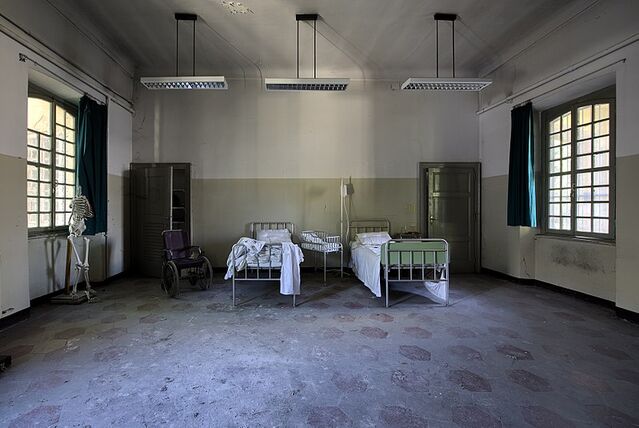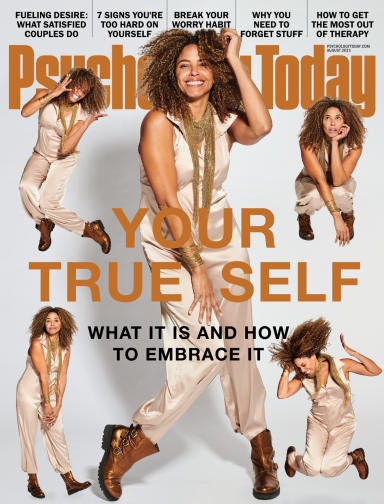Psychiatry
What Is Anti-Psychiatry?
Part I: Getting to the heart of critiques and critics of psychiatry.
Posted October 1, 2020 Reviewed by Abigail Fagan
THE BASICS

The anti-psychiatry movement—defined on Wikipedia as based on the premise that psychiatric treatment is more often damaging than helpful to patients—has been around for decades in one form or another. Last year, I offered some of my perspectives on the movement in a blog post called “Answering Antipsychiatry.”
More recently, I revisited the topic in a co-authored Medpage op-ed and was also interviewed for a Vice article about anti-psychiatry by Shayla Love. The entire interview will be published here in a two-part series, with a few expanded answers and edits.
When did you first hear about anti-psychiatry? Was it through reading someone's writing? Through a colleague or school? What was your first understanding of what it meant, and what was your reaction to it?
A friend of mine gifted me a copy of Thomas Szasz’s The Myth of Mental Illness when I was in college studying psychology and I’ve continued to follow the movement throughout my training to the present day. I’m familiar with the work of other psychiatrists like R.D. Laing and Loren Mosher, and I've always been interested in and sympathetic to the argument of David Rosenhan’s classic—if recently discredited—1973 Science article, On Being Sane in Insane Places. I’m a fan of Ken Kesey’s One Flew Over the Cuckoo’s Nest and especially the film version which does an excellent job of highlighting how power can be abused in psychiatry or more broadly by institutions of authority (although it did a terrible job of portraying modern ECT).
I've followed certain topics popular within anti-psychiatry quite closely through the years, such as claims about the ineffectiveness of psychiatric medications and especially claims that psychiatric diagnoses lack “validity” or don’t exist at all. Prior to the release of 5th Edition of the Diagnostic and Statistical Manual of Mental Disorders (DSM-5), the criticisms of Dr. Allen Frances, the former Chairperson for the DSM-IV, caught my eye. I ended up writing several academic articles on the challenges of psychiatric diagnosis including their “fuzzy boundaries” and was able to collaborate with Dr. Frances on several projects as well.
Several years ago, someone also sent me a copy of Bob Whitaker’s Anatomy of an Epidemic in the mail. I read it and have responded to some of its claims, and the research they're based on, in a previous blog post.
I also do interact with people who are critical of psychiatry on social media from time to time.
How would you briefly define anti-psychiatry now? Has this definition changed at all for you since you first heard of it?
“Anti-psychiatry” is a broad label that’s applied to those who are “against psychiatry.” I’ve often said that anti-psychiatry isn’t a monolith, just as psychiatry isn’t either. Broadly speaking, “anti-psychiatry” has been used to encompass those who are merely critical of certain aspects of psychiatric practice as well as those who have more wholescale opposition. The movement includes patients, former patients, and their families; mental health clinicians including psychologists and psychiatrists alike; and yes, Scientologists. Based on my online presence in places like Twitter, I’ve become more aware of how much of modern “anti-psychiatry” has become a consumer movement.
An argument could be made that “anti-psychiatry” should only be applied to those who see nothing good about the practice of psychiatry and find it irredeemable. But anti-psychiatry ideology exists on a continuum and like psychiatric diagnoses themselves and words and labels in general, it’s not always clear where we should place definitional borders.
THE BASICS
As a psychiatrist, I think it's perfectly reasonable to say that there's good psychiatry and bad psychiatry with plenty of room for improvement. But I have faith that good psychiatry is out there and that people can find it. Anti-psychiatry, in my view, argues the opposite—that psychiatry is a hopeless cause that deserves to be torn down and dismantled.
It seems to me, as an outsider, like there's a spectrum of opinion within anti-psychiatry. I've seen some literature that suggests that all psychiatry/pharmacological treatment of mental illness is misguided—mental illness either reflects an individual's unique way of being, or is a metaphor for other problems. Can you talk about this more extreme side of anti-psychiatry and whether or not you think this represents the majority of the movement today?
Psychiatry Essential Reads
Exactly. There’s a wide range of opinions, with criticisms focused more narrowly and more broadly. A common complaint from anti-psychiatry is that psychiatric diagnoses are stigmatizing labels, and that’s often a complaint about the term “anti-psychiatry” itself. I’ve heard many claim they aren’t “anti-psychiatry,” though they espouse anti-psychiatry views. Some, including psychiatrists and psychologists, prefer the terms “critical psychiatry” or “critical psychology.”
But yes, my main concern is that the more extreme side of the spectrum—embodied in Scientology claims that “psychiatry kills” or that psychiatry is “evil”—detracts from legitimate criticism of psychiatry, invalidates the many positive experiences that some people have had with psychiatric care, and deliberately steers people away from psychiatric care when it’s needed.
It’s hard to say whether the extreme represents the majority of the movement—like any extreme, probably not, though it can often be the most vocal.
What is the movement like today? How much influence do you think groups like Mad in America have?
I see the movement as diverse and somewhat disorganized, reflecting the many different perspectives represented within it. For example, some years ago, I participated in an online project to discuss alternative diagnostic alternatives to the DSM—what I witnessed was that no one could agree on anything or come up with anything close to a workable alternative.
I see Mad in America as akin to a consumer support or advocacy group, no doubt with aspirations to lobby mental health policy and affect how the treatment of mental illness is approached. I think it has been something of a success in that regard, but also, and more concerningly, a source of potential misinformation. And because of its insular nature, it often escapes the kind of critique, whether self-critique or critique from outside, that’s inherent to scientific or academic fields.
What criticisms that come from antipsychiatry do you find valid? There's been a lot of discussion around the veracity of the DSM, how we've come up with diagnoses, and how our treatments of various mental illnesses are not that effective. Are there lessons to be learned here from antipsychiatry?
At least since the 1970s, psychiatry has tried to orient itself firmly within the disciplines of medicine and science. As such, criticism, research, and corrective self-improvement are both necessary and inherent to its practice. In fact, self-criticism happens within psychiatry all the time—I don’t know any psychiatrists who think that psychiatry is perfect by any means.
Really, there are too many areas where psychiatry needs to be improved to mention. We need safer and more effective interventions to treat people with mental illness. We need to better understand, and educate the public about, when medications are more helpful and when they are less so. We need to get closer to diagnoses that are validated by explanatory biological pathophysiologies. We need to reform mental health care throughout the world to destigmatize mental illness and provide more compassionate care. We need to better equip families and communities to support people with mental illness. The list goes on… presumably, this represents common ground between psychiatry and anti-psychiatry.
If there’s a lesson to be learned from anti-psychiatry, it’s that not all of our patients are satisfied customers and they deserve to be heard. But psychiatrists who work with patients already know that they’re not always satisfied and listening to feedback with empathy is part of routine daily clinical work. And so, if the goal of anti-psychiatry is to get psychiatrists to listen, my feeling is that this is better done within a therapeutic relationship, not in a picket line at the American Psychiatric Association annual meeting or on social media.
At the same time I acknowledge that, like any form of social protest, people often raise their voices because they feel they’re not being heard. I understand that, but would still encourage those who continue to struggle with mental health issues and have been dissatisfied with their psychiatric care to shop around until they find a mental health provider who can listen with an open mind and try to problem-solve collaboratively. That’s how good psychiatric care is supposed to work.
In the 2nd part of this series, Taking a Critical Look at Critical Psychiatry, I'll discuss the shortcomings of anti-psychiatry critiques and their potential dangers.
To read more about the anti-psychiatry movement:
















